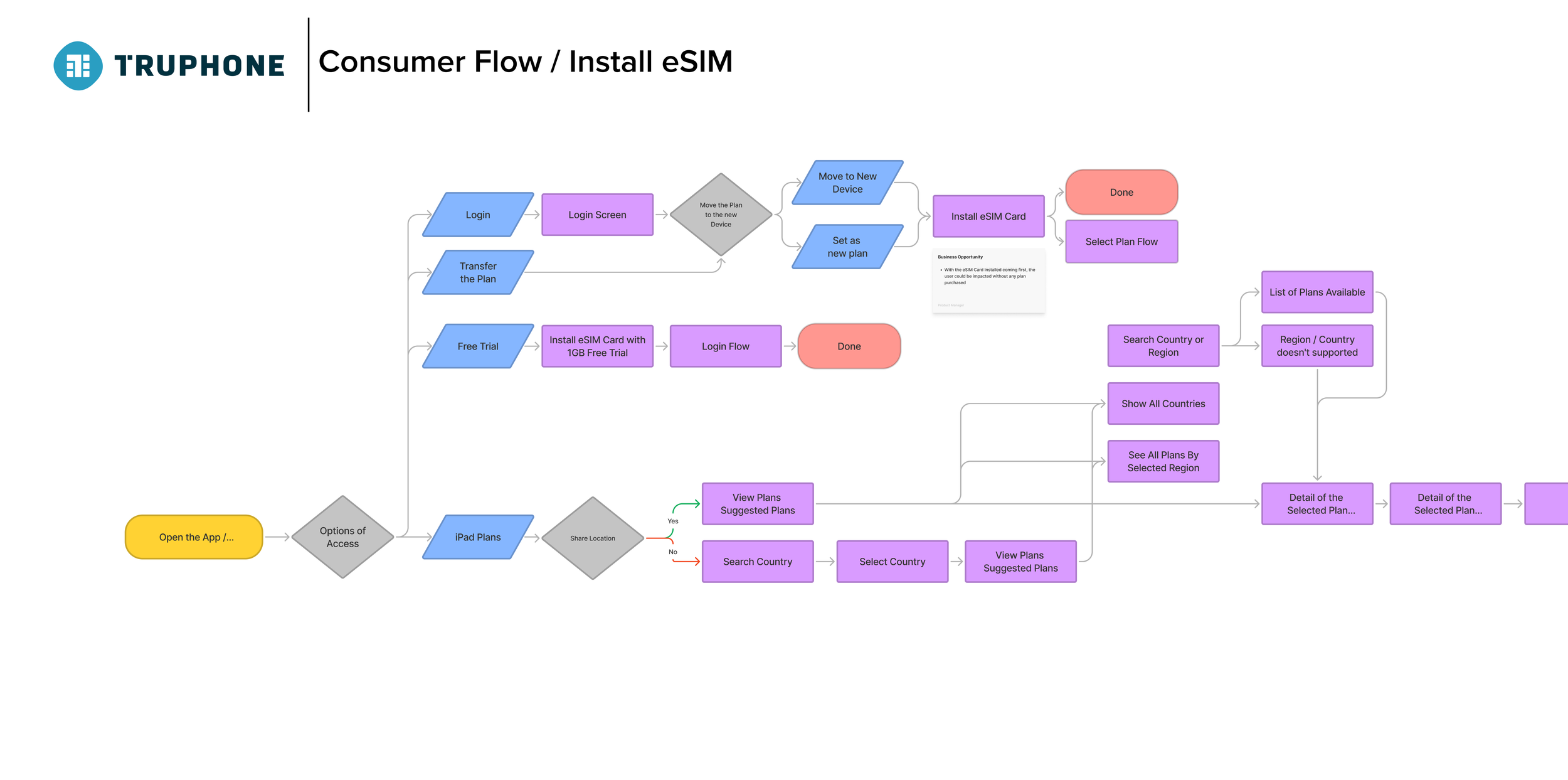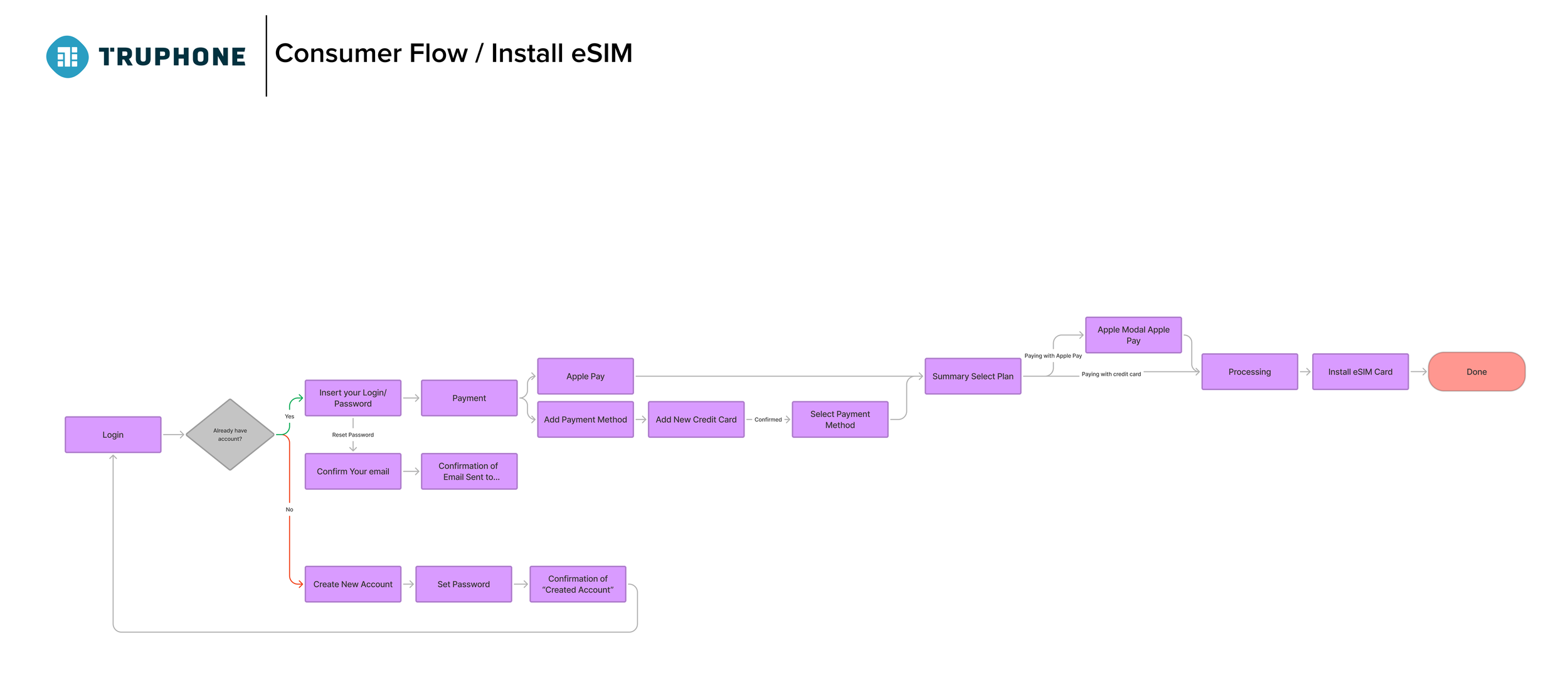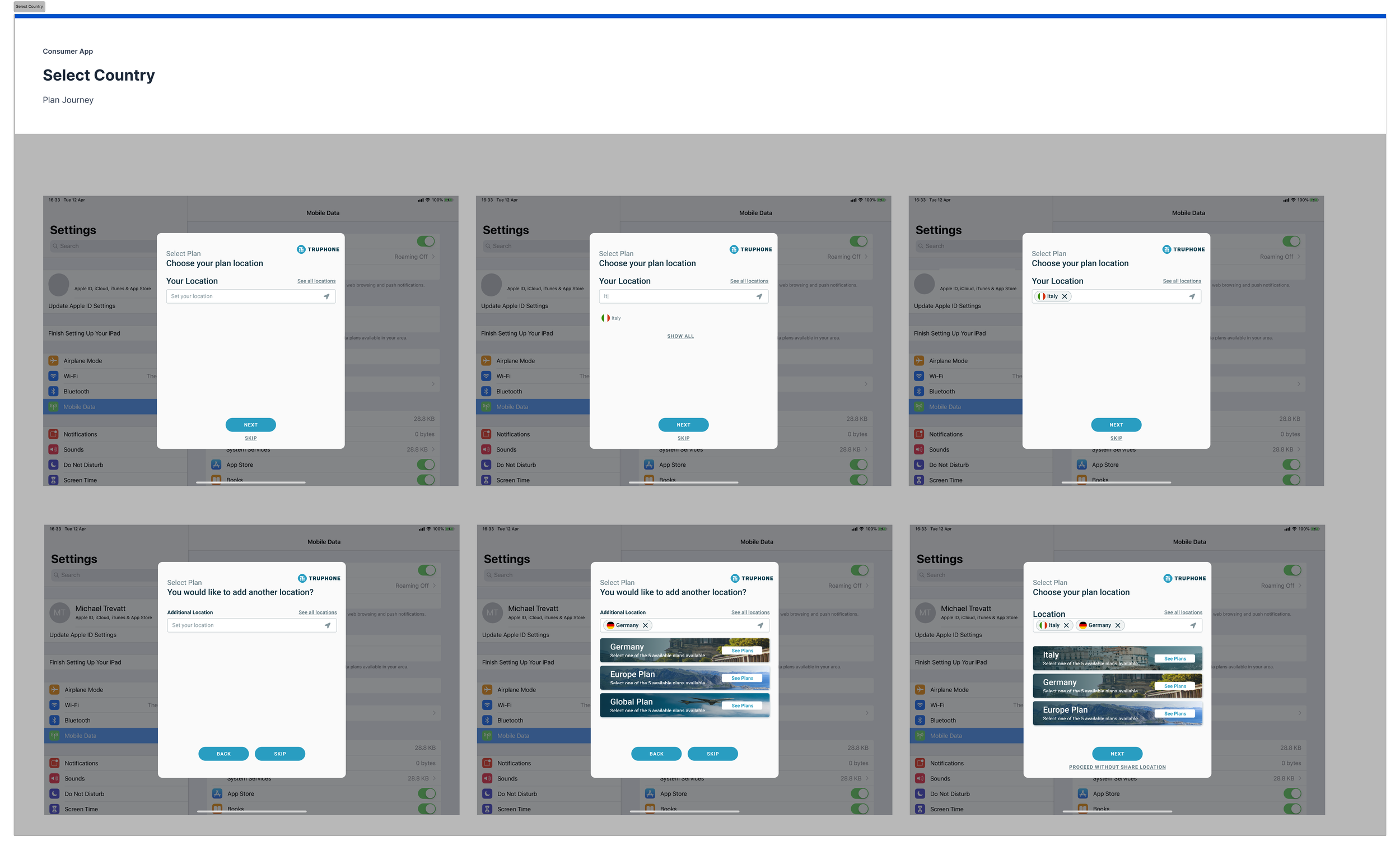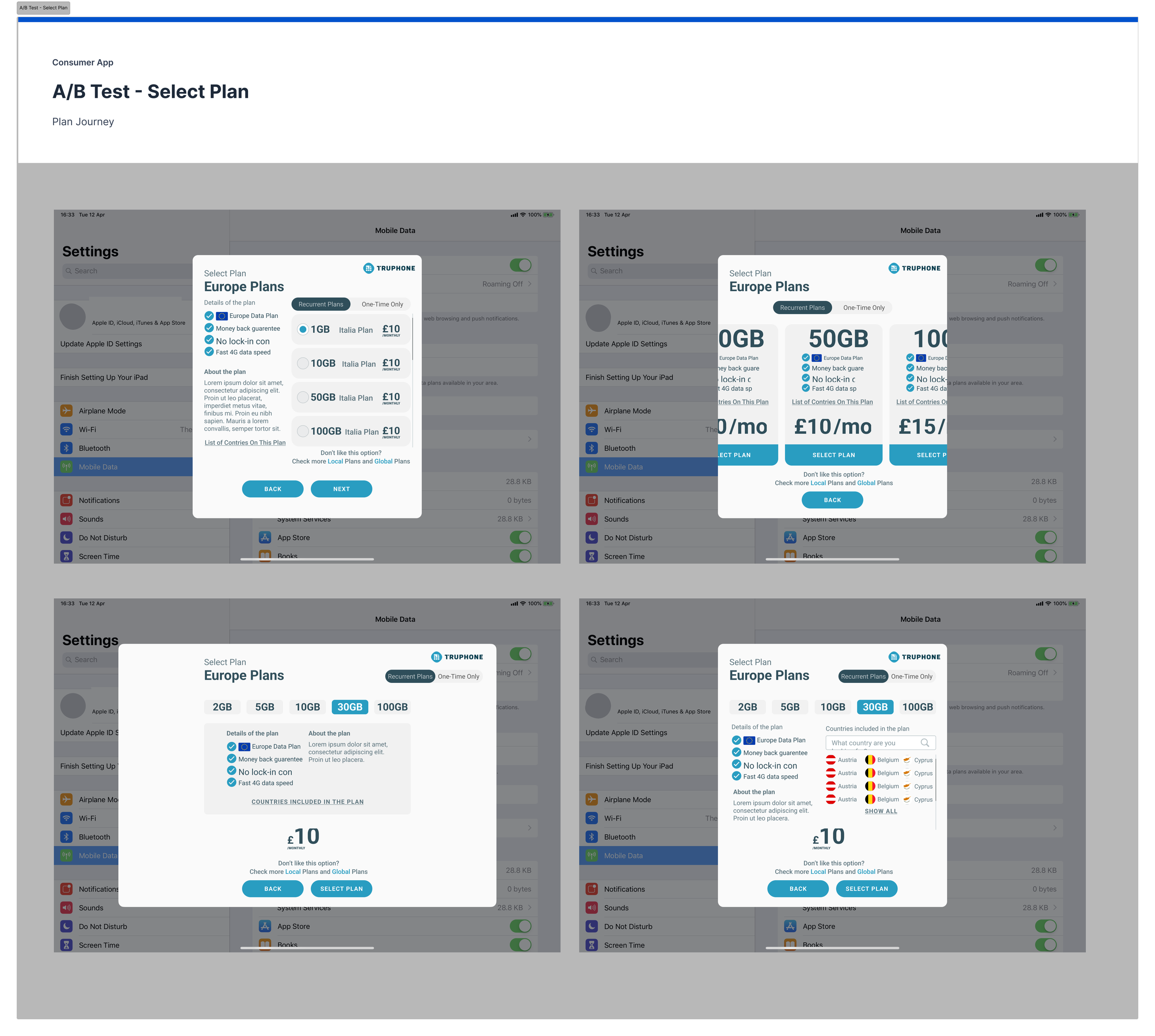Truphone
Overview
Company: Truphone - Global mobile network operator specialising in eSIM technology
Role: Senior Product Designer
Team: Reporting to Head of Design
About Truphone
Truphone provides seamless connectivity for travelers and businesses through innovative eSIM technology. Users can switch between multiple mobile networks without physical SIM cards. The company serves both consumer and business clients, including Apple and Bloomberg.
My Role & Impact
As the lead designer for Truphone's consumer division, I spearheaded the complete redesign of the consumer mobile app. My responsibilities included:
Redesigning the KYC journey to streamline the sign-up process
Creating a flexible plan management system for local, regional, and global data plans
Introducing multi-region eSIM functionality for seamless travel experiences
Conducting user research to identify new business opportunities
The Challenge
Through stakeholder feedback, support ticket analysis, and user research, we identified four critical problems affecting user experience and business growth:
1. Duplicate Plan Purchases
The Problem: Users were accidentally purchasing duplicate plans when upgrading devices, particularly during iPhone releases (Sept/Oct). They didn't understand how to transfer existing eSIM plans to new devices.
Impact: Increased support tickets and customer frustration
User Quote: "I already have a plan; why was I charged twice?"
2. Plan Type Confusion
The Problem: Users struggled to understand the differences between Local, Regional, and Global plans, leading to purchase hesitation and errors.
Impact: Lower conversion rates and increased support inquiries
User Quotes:
"I'm in the USA; how could I buy a plan to use in Italy if I'm not there?"
"Why do I need to buy into different EU countries for my travel if all EU plans are roaming-free?"
3. Limited eSIM Functionality
The Problem: Despite technological advances allowing multiple plans on one eSIM, our app didn't support this capability, forcing users to manage multiple eSIMs.
Impact: Poor user experience for frequent travelers
4. Untapped Market Segments
The Problem: The platform wasn't addressing specific user needs identified through research, missing potential revenue opportunities.
Research & Discovery
Methodology
Qualitative interviews with existing users and non-users
Support ticket analysis to identify pain points
Usage data analysis to understand purchase patterns
Stakeholder interviews to align business goals
Key Findings
Voice + Data demand: Digital nomads needed calling capabilities alongside data plans
Manual provider selection: Power users wanted network control
Emerging user segments:
Business users needing backup connectivity
Emergency/temporary 24-hour plans
Gig workers requiring network redundancy
Immigrants needing SMS verification capabilities
Design Process
1. User Journey Mapping
Created comprehensive journey maps for different personas to identify experience gaps and opportunities for improvement.
2. Information Architecture
Restructured the app's navigation to make plan selection and management more intuitive.
3. Key Design Solutions
Solution 1: Smart Device Transfer Flow
Created an educational onboarding for device transfers
Added clear CTAs for existing users upgrading devices
Implemented automatic plan detection to prevent duplicates
Solution 2: Visual Plan Differentiation
Designed clear visual hierarchy for plan types
Added interactive maps showing coverage areas
Created contextual tooltips explaining plan benefits
Solution 3: Multi-Region eSIM Feature
Enabled adding multiple regions to single eSIM
Designed intuitive region management interface
Created seamless switching between active regions
Solution 4: Flexible Plan Options
Designed modular plan system for different use cases
Created quick-purchase flows for temporary needs
Added plan recommendations based on user profiles
4. Testing & Iteration
Conducted A/B testing on plan selection screens
Iterated based on user feedback
Validated solutions with prototype testing
Results & Impact
Reduction in support tickets related to duplicate purchases
Increase in conversion rates
User satisfaction improvements
New user segment adoption rates
Key Learnings
Clear communication is crucial - Technical concepts like eSIM need simple, visual explanations.
Support data is invaluable - Analysing support tickets revealed critical UX issues.
User segmentation drives innovation - Identifying specific use cases opened new business opportunities
Iterative testing works - A/B testing helped optimise critical flows
Next Steps
While I transitioned from the role before full implementation, the research and designs were handed off to the business team for development prioritisation. Key recommendations included:
Launching voice + data plans for digital nomads
Implementing temporary plan options
Expanding into identified market segments
Continuing iteration based on user feedback
View More Projects
-

Evoke & William Hill
Evoke PLC is a global leader in the sports betting and gaming industry, owning and operating some of the world’s most recognised and trusted brands. With a portfolio that includes William Hill, 888casino, 888sport, 888poker, and Mr Green, Evoke delivers premier entertainment experiences to millions of customers worldwide.
-

Google
Development of an AI-powered feature for Google My Business, enabling business owners to streamline profile management, analyse customer feedback, and identify behavioural trends.
-
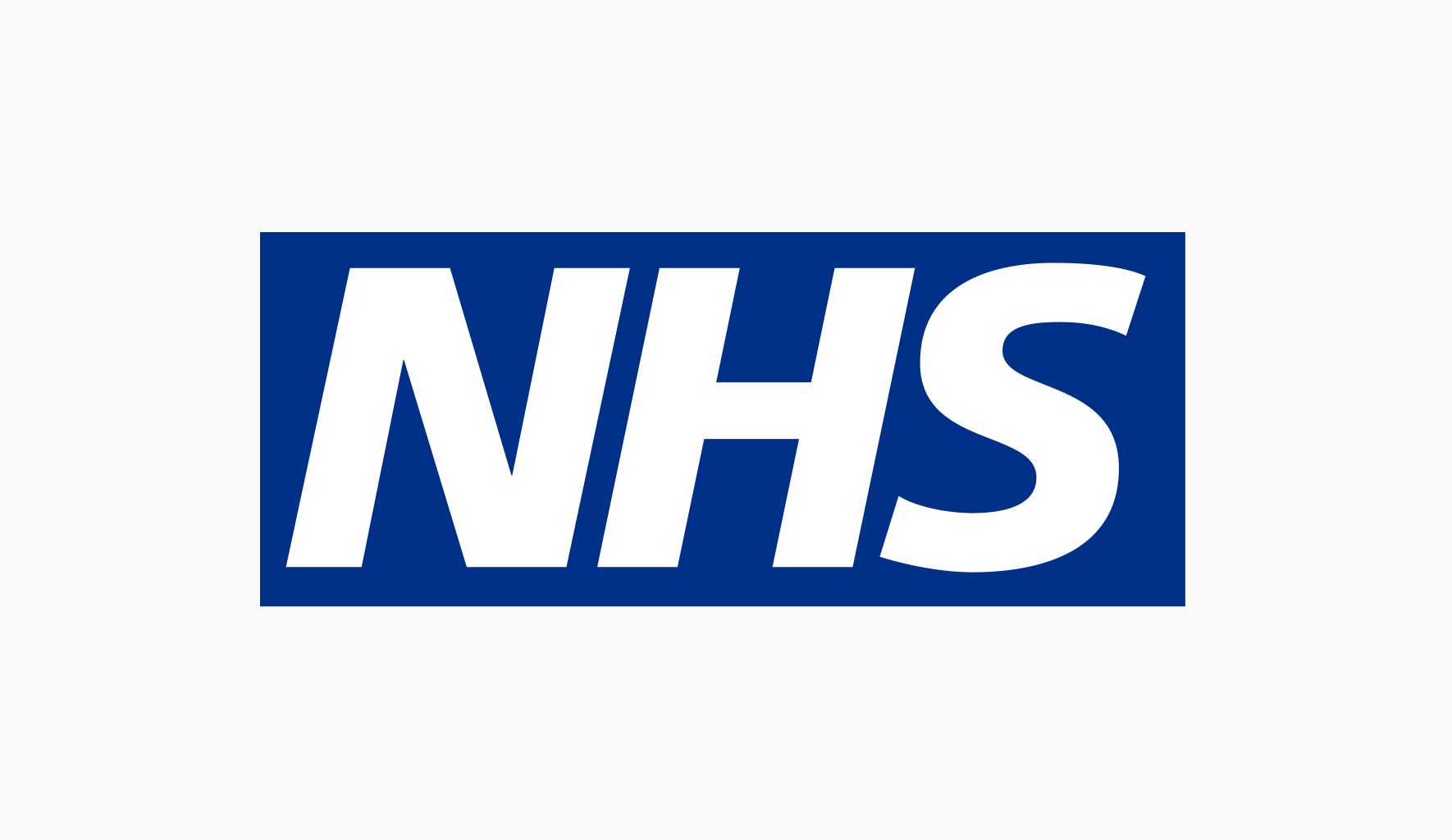
NHS
The project involved modernising multiple dashboards within a unified NHS platform to align with the updated Design System. With the previous design spanning over a decade, significant updates were necessary. Workshops with NHS stakeholders identified key areas for improvement, ensuring the redesign enhanced user journeys. Design elements from the NHS Design System were seamlessly integrated into the new workflows, improving usability and ensuring consistency across the platform.
-

Truphone
Truphone is a global mobile network operator specializing in seamless connectivity for travelers and businesses. Leveraging innovative eSIM technology, it enables users to switch between multiple mobile networks without the need for physical SIM cards. Truphone’s offerings include international data plans, mobile device management, and secure, reliable global communication solutions.
-
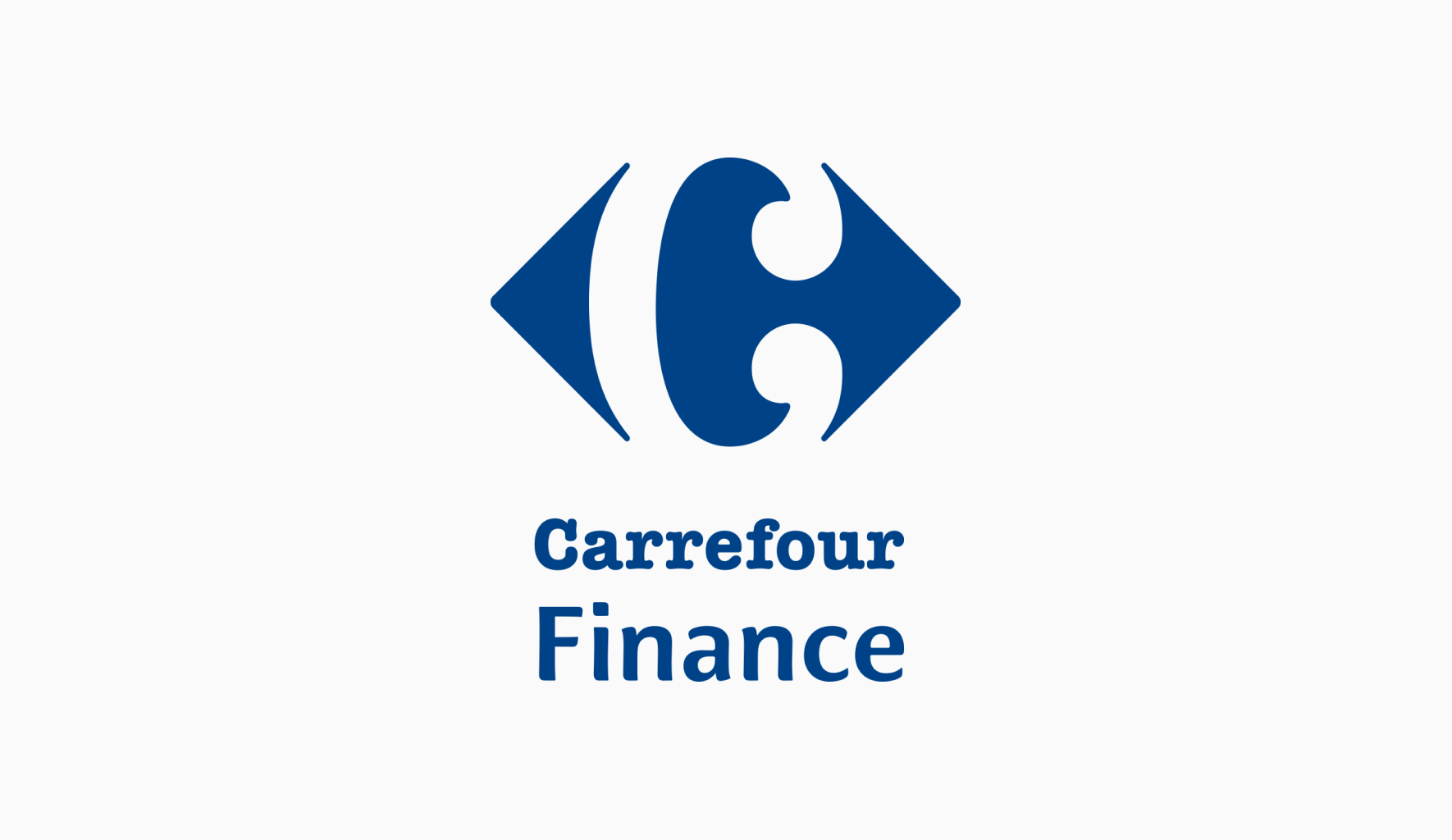
Carrefour Bank
Carrefour is one of the largest supermarket chains in France, with operations worldwide. In South America, in addition to its supermarket operations, Carrefour offers a credit card designed for users with limited financial resources. The project aimed to expand this offering into a full everyday account and credit card solution, enabling users to manage their daily transactions—such as salary deposits, prepaid phone top-ups, and public transport card recharges.
-

GK One
GK is the largest product holding company in Jamaica and Central America, where it operates from food products to financial products. With significant market share in Europe and North America.
-
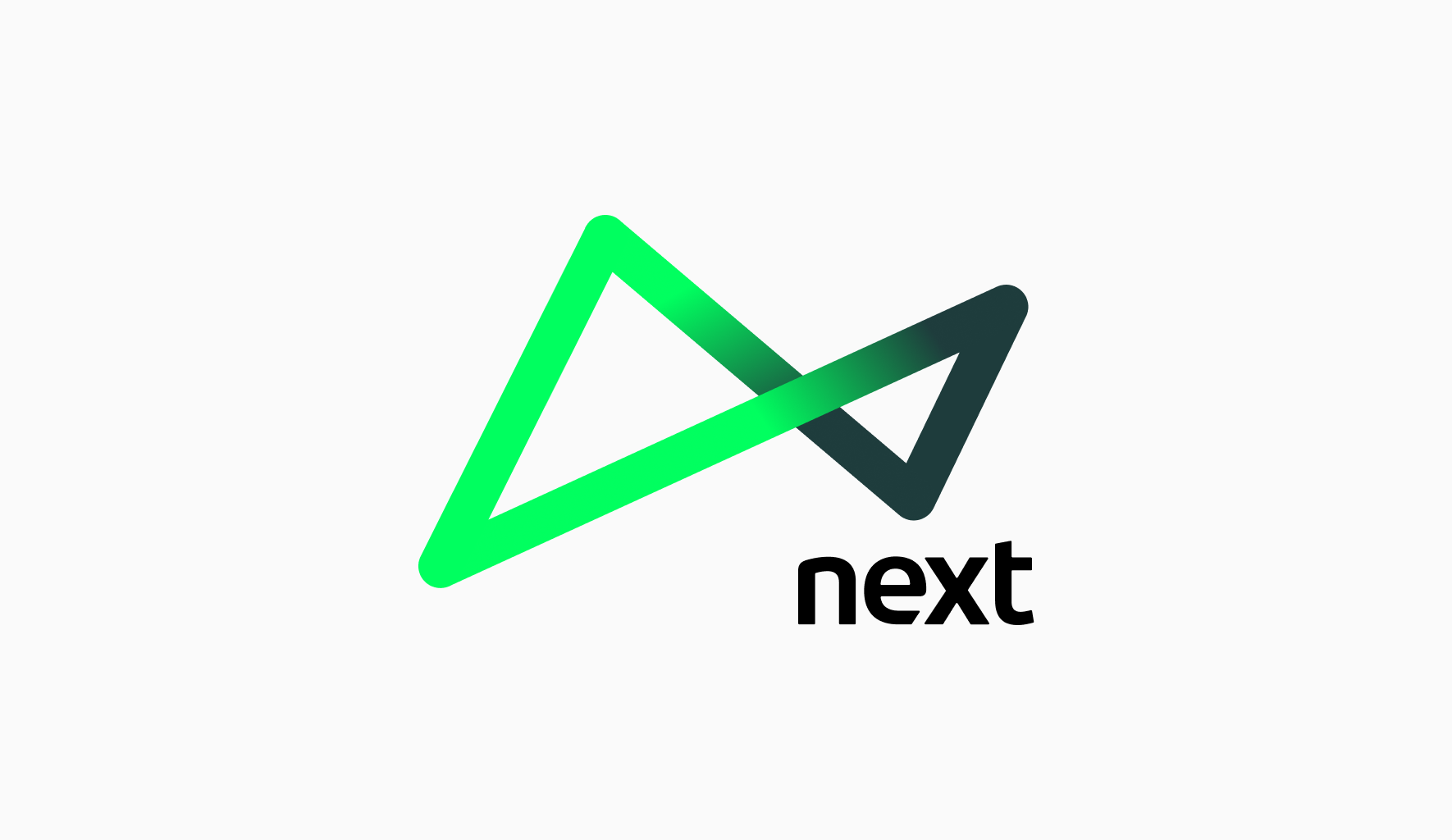
Bradesco Next
Bradesco is the biggest Brazilian bank. Long-established, its goal is to attract new clients from younger generations that haven’t yet opened a bank account. As a mean to accomplish that, their strategy was to release a new brand to target younger audiences that hadn’t yet related with the brand. Therefore, the main goals were: attract and target younger audiences / enable access to a financial institution.










